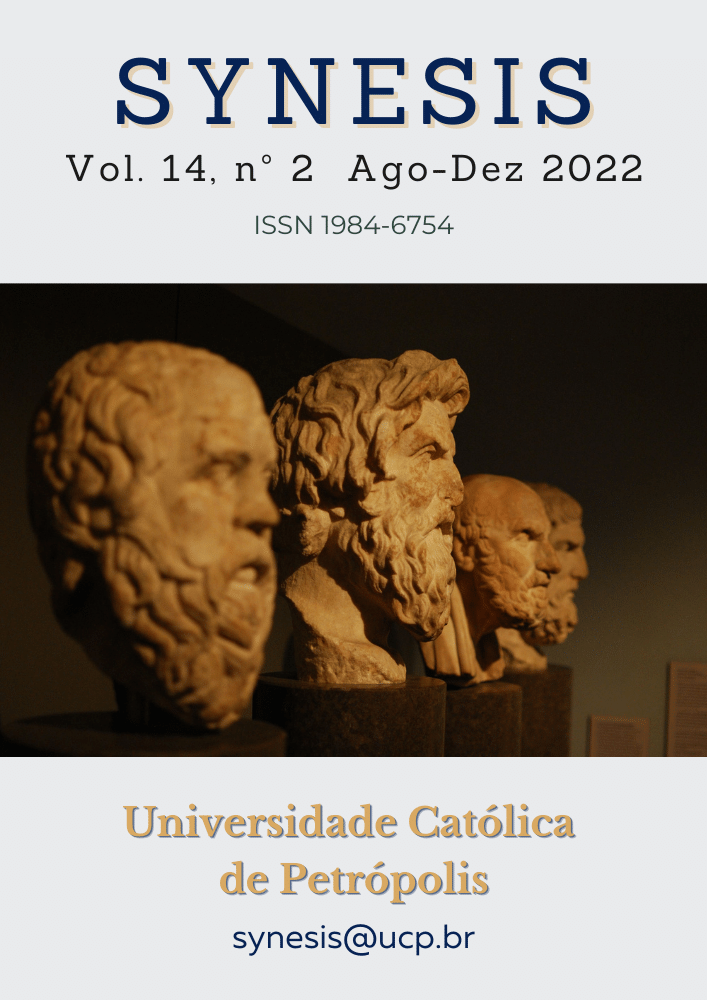Resumo
Hegel é o grande filósofo da humanidade e deixou um tremendo legado filosófico para a humanidade. Seu pensamento filosófico é o resultado do estudo da história do pensamento humano, que ele resumiu em princípios e leis para extrair o caminho do pensamento na percepção dos objetos. O sistema filosófico de Hegel cobriu muitos campos e desenvolveu muitas ideias ricas e únicas, que são significativas para marcar os tempos. O pensamento de Hegel preparou o caminho para o surgimento de outras teorias. É necessário encontrar sua crença de que a natureza profunda do mundo não é a consciência individual, mas uma ideia. Essa é a concepção espiritual absoluta de Hegel. Este artigo utiliza a metodologia materialista dialética com princípios gerais, históricos específicos e de desenvolvimento para avaliar e considerar o ângulo mental que Hegel mencionou em sua filosofia. Além disso, o artigo também usa métodos analíticos e de síntese para esclarecer o idealismo absoluto de Hegel. Porque ele acreditava que só o idealismo é filosofia, segundo Hegel, filosofia é a ciência do pensamento. O artigo explica o idealismo de Hegel quando ele diz que uma ideia fundamental é uma realidade objetivamente com o pensamento das pessoas e das coisas neste mundo.
Referências
Craig, T. (2022). Nature, Spirit, and the Question of Subjectivism in Hegel: Two Key Aspects of Hegel’s Treatment of Nature.
Dunham, J., Grant, I. H., & Watson, S. (2014). Idealism: The history of a philosophy. Routledge.
Ferro, B. (2022). Hegel’s Phenomenology of Spirit. In Masters, Slaves and Philosophers (pp. 135-157). Springer.
Friedman, S. (2022). Hegel’s Philosophy of Right After 200 Years. Taylor & Francis.
Hegel, G. W. F. (1900). The philosophy of history (Vol. 12). Willey.
Hegel, G. W. F. (2022a). The phenomenology of mind. DigiCat.
Hegel, G. W. F. (2022b). Philosophy of mind. Lindhardt og Ringhof.
Hegel, G. W. F., & Knox, T. (1975). Hegel’s Aesthetics–Lectures on Fine Art, volume I. Overs. TM Knox. Nytt.
Hiromatsu, W. (2022). Philosophy in Marx. In The Schema of the Theory of Reification (pp. 179-200). Brill.
Majewska, E., & Wójcik, B. (2022). The Return of Hegel: History, Dialectics and the Weak: Introduction. Praktyka Teoretyczna(1 (43)), 9-18.
Panova, O. B. (2015). Spirit and language in Hegel's philosophy of absolute spirit. Procedia-Social and Behavioral Sciences, 200, 502-508.
Ramsiej, K. D. (2022). Thought and Reality a critical study of Hegel's philosophy. Concept Publishing Company Pvt. LTD.(2013).
Read, J. (2022). Desire is man’s very essence: Spinoza and Hegel as philosophers of transindividuality. In The Production of Subjectivity: Marx and Philosophy (pp. 255-273). Brill.
Rojek, C. (2022). Hegel contra celebrity: the reconciliation of subject and object. American Journal of Cultural Sociology, 1-15.
Schütze, R. (2022). German Idealism after Kant: Nineteenth-Century Foundations of International Law. Journal of the History of International Law/Revue d'histoire du droit international, 1(aop), 1-37.
Solomon, R. C. (1985). In the spirit of Hegel. Oxford University Press.
Waibel, V. L. (2022). “Consciousness in Its Own Self Provides Its Own Standard”. Hegel and the Spirit as a Process of Thinking. ETHICS IN PROGRESS, 13(1), 41-56.
Williams, R. R. (1992). Recognition: Fichte and Hegel on the other. Suny Press.
Xiaomang, D. (2022). A New Exploration of Hegel's Dialectics II: Negation and Reflection. Routledge.
Zwart, H. (2022). Dialectical Materialism. In Continental Philosophy of Technoscience (pp. 67-109). Springer.

Este trabalho está licenciado sob uma licença Creative Commons Attribution-NonCommercial-NoDerivatives 4.0 International License.
Copyright (c) 2022 Synesis (ISSN 1984-6754)

